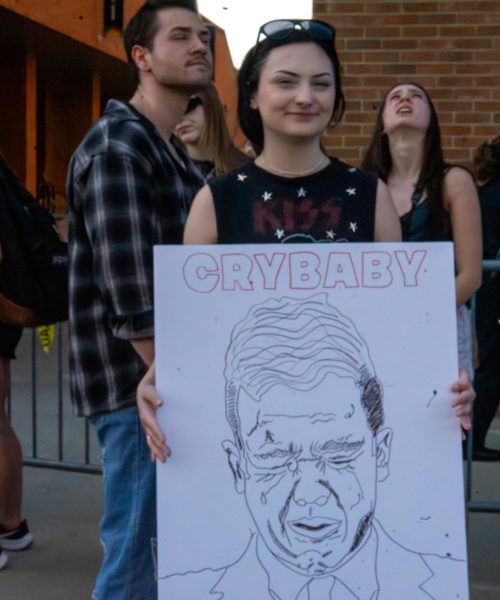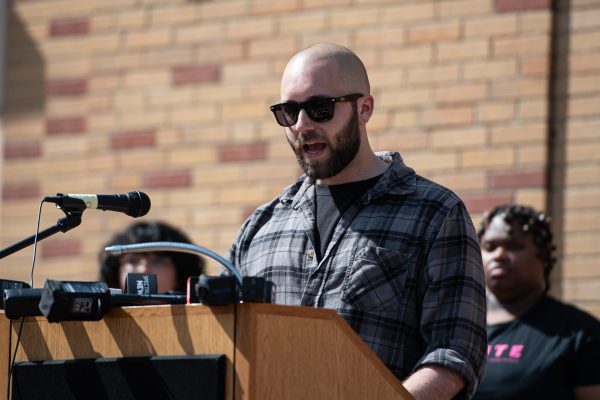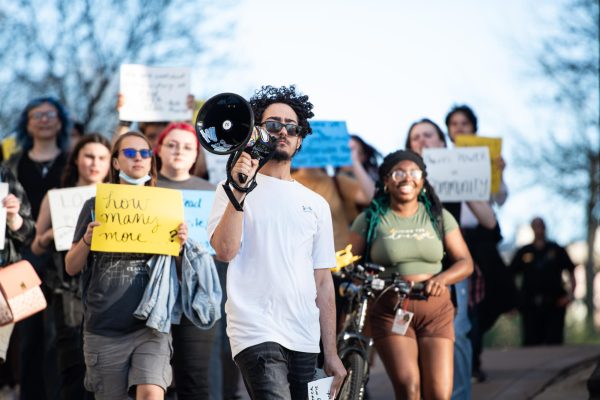Schimmel brings sociological theory, race issues to sport classes
November 7, 2008
Associate professor encourages diversity
“What if they meant someone in architecture?” was one of the first thoughts that crossed Professor Kimberly Schimmel’s mind when it was announced she was one of three winners for the Distinguished Teaching Award.
“I couldn’t breathe – honest to goodness I almost hyperventilated, then I almost cried,” said the associate professor of the School of Exercise, Leisure and Sport.
Since arriving 13 years ago, Schimmel has developed three very distinct classes that she teaches each semester: Sport in Society, Sport in Global Perspective and Sociology of Sport.
“It was something entirely different than I expected it would be,” said Lindsey Vander, a fifth-year senior physical education and health major.
Vander is referring to the course Sport in Society. Schimmel explained that the domestic diversity course, like Sport in Global Perspective and Sociology of Sport, deals with sensitive issues such as race, class, gender and sexual orientation. She said the courses challenge students to question their assumptions about sport and help them understand sport’s potential role as an agent for social change.
“Students come in and think ‘I watch SportsCenter, I’ll get an ‘A’ – and here I am talking Marxist theory to them,” Schimmel said.
Schimmel said one of the challenges is bringing sociological theory, issues of diversity and the process of globalization alive for students.
“It’s not always fun – sometimes it’s frustrating, hard work and time consuming, but when students get into what we’re talking about, it’s a lot of fun,” Schimmel said.
In each of her classes, Schimmel uses everything from PowerPoint to student presentations to YouTube clips to engage students in the subject matter.
For the last 15 years, Schimmel has been doing research into the political economy of sport, sport and local/global urban conditions as well as sports mega-events and infrastructure development. Schimmel’s research looks to answer the questions “who is it good for?” and “who does it burden?”
Her research into the social impact of sports mega-events and infrastructure development has given her the opportunity to travel to more than 13 destinations across the globe including England, Greece, Denmark, Iceland and China.
Schimmel will soon be off to Porto Alegre, Brazil, to attend a conference discussing the cautions for country, city and citizens for Rio de Janeiro’s bid to hold the 2016 Olympics. She will also be teaching in Australia next semester.
Schimmel is both honored and humbled by the award.
“It has to be the highlight of my teaching career,” she said.
Contact college of education, health and human services reporter Elizabeth Rund at [email protected].























